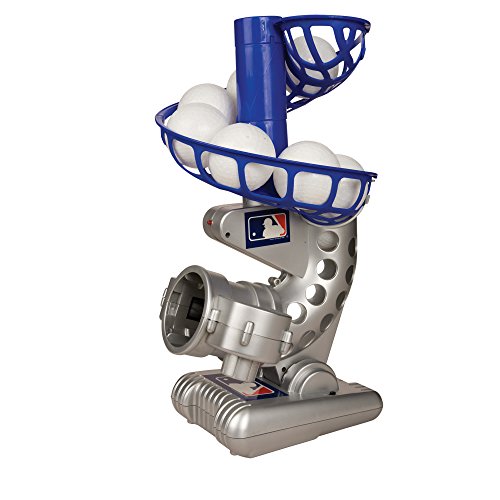(This article features an exclusive interview with baseball legend Denny McLain.)
The destruction of small businesses and widespread violence have been two devastating, regressive developments in America in 2020. By May, due to Covid-19 shutdowns, more than 100,000 small businesses had permanently closed in the US. At a time when Americans of all races could have been uniting with small business owners such as hair salon owner Shelley Luther in Texas to demand the restoration of their livelihoods, instead looting and rioting began in Minneapolis on May 26th. Blacks and whites were set against each other using the effective tactic of divide and rule with the media playing the key role. The violence continued in 34 U.S. cities as BLM and politicians called for defunding the police. Cultural events such as sports and music were also shut down, so there was no outlet to unite people of all races.
This has been the most violent and racially divisive time in America since 1968. That’s when Denny McLain was having his greatest year in baseball, pitching for the Detroit Tigers: he won 31 games, the Cy Young Award (the first of two), the Most Valuable Player Award and made the All-Star team. The Tigers won the World series that year too. McLain is baseball’s last 30 game winner. “We had Vietnam going on,” McLain recalls, “and there was a lot of civil unrest.” In the aftermath of the assassination of civil rights leader Martin Luther King, Jr. – an outspoken opponent of the war – riots had broken out in 100 cities.
 I Told You I Wasn&rsqu...
Best Price: $17.02
Buy New $22.95
(as of 05:10 UTC - Details)
I Told You I Wasn&rsqu...
Best Price: $17.02
Buy New $22.95
(as of 05:10 UTC - Details)
The Covid-19 shutdowns have adversely impacted McLain too. A gifted athlete and musician, he has never worked for the government or a corporation; he has always been an entrepreneur and businessman. He has not been able to travel around the country to sports trade shows, schools, malls, theatres and other venues where he signs autographs on baseball memorabilia, talks with and poses for photos with fans. Still passionate about and an expert on baseball, he loved interacting with his fans and did so at 170 events in 2019.
In 1967 when he was playing with the Tigers, there were five days of riots between blacks and the police in Detroit. Governor George Romney called the National Guard in and LBJ sent in the Army. When it was over, there were 43 dead, 1,189 injured, 7,200 arrests and more than 2,000 buildings destroyed. “In 1967 the baseball team was good friends with the police,” recalls McLain. “They said some guy popped his gun. This didn’t have anything to do with racism,” he said. The documentary “A City on Fire: The Detroit Tigers” on YouTube captures the initial turmoil and the city’s metamorphosis by the baseball team. “In those first days it wasn’t black on white/white on black. There was a lot of diversity in the looting. I saw black and white people help each other out. It was the disaffected, the poor, the have nots were saying, ‘Now it’s my chance to get something,’” observed Detroit Free Press City Editor Neal Shine.
As McLain recalls, “People came in from suburbs, they didn’t belong in Detroit. A lot of us lived in Detroit. We had our share of problems but the city was a good city, and we had a bustling downtown area.” He lived in the city off and on. “We played ball, visited with our friends, and went to restaurants every day after the ballgame.” Due to the civil unrest, “We had to move certain home games for a week or two to visitor’s parks. I don’t remember anything more dramatic. After the 1967 riots we had to play Baltimore and those games got moved to Baltimore, maybe Cleveland. The team was color blind. There were no issues between the races. We played cards on the road. We were a team and had been together a long time.”
 Franklin Sports MLB El...
Best Price: $20.88
Buy New $29.99
(as of 05:10 UTC - Details)
Franklin Sports MLB El...
Best Price: $20.88
Buy New $29.99
(as of 05:10 UTC - Details)
After King was assassinated in 1968, riots broke out in Detroit and in other US cities. “After ‘67 there was a lot of forgiving to do,” McLain remembers. “We didn’t burn any squad cars or windows; very little of that happened. We learned a lot from ‘67.” As McLain recalls, the unrest came and went pretty quick on 12th Street. “The newspapers were on strike and could not write bad stories about Detroit. They could not feed the hysteria that the media can create.”
The 1968 Tigers team became the common denominator to bring peace to the city of Detroit. The players visited playgrounds, schools, little league games, senior homes, and work places. “We went out in the community and talked to people as friends. We were trying to keep the city quiet and we did a pretty good job. People went to bed every night listening to their transistor radios. In the morning people would ask, ‘What did the Tigers do last night?’ Kids in grammar and high school watched the World Series during the day. The night we won the pennant, I don’t care what color you were, everybody hugged each other. We had a celebration for a couple of weeks. There was nothing but good. It healed Detroit and I don’t think anyone would disagree. It was a lot of good times.”
Contrast this healing in 1968 with baseball existing as a powerful unifying force and a foundation of community pride with 2020 when the experience of fans cheering on their home team in person was not allowed due to Covid-19. The baseball season started in June but no fans were permitted in the stadiums. There was no outlet to bring the community together to ease racial tensions.
 McDavid HEX Chest Prot...
Buy New $16.00
(as of 05:10 UTC - Details)
McDavid HEX Chest Prot...
Buy New $16.00
(as of 05:10 UTC - Details)
Protestors obtained permits to demonstrate in Detroit, McLain said, but for the most part the disrupters were not from Detroit, they were coming in from Kentucky and Iowa and other states. “One squad car on fire is one too many and one person getting hurt is too many,” he said. Detroit Police Department budget cuts have been going on for years, McLain said, cutting back on the police presence around the city which had brought more peace to Detroit.
He opposes defunding the police but believes reforms are good. He said Detroit Police Chief James Craig had met with protestors and that the police department was opening additional police stations around the city to better serve local communities. “Problems won’t go away if you are going to put your head in the sand. Talk is key where different sides acquiesce with each other. Let the process start. People are smart enough. The solution is the most important part. The greatest opportunity we have in this world is that we can disagree with each other and we won’t kill each other.”
The Wall Street Journal reports from 2015-20 Detroit paid out $28.5 million for misconduct claims. Other reforms demanded by protestors are reallocating funds from police to public services; bans on the use of no-knock searches, tear gas, rubber bullets, chokeholds and facial-recognition technology; requiring independent investigations of officer-involved deaths; prosecuting officers involved in brutality and encouraging the use of police body cams, and implementation of duty to intervene protocols.
 SKLZ PitchBack Basebal...
Best Price: $17.77
Buy New $24.95
(as of 05:10 UTC - Details)
SKLZ PitchBack Basebal...
Best Price: $17.77
Buy New $24.95
(as of 05:10 UTC - Details)
Ever the optimist, McLain and looks at the bright side of life and people. Of Detroit he said, “This is the Midwest with great people. People work hard. It is nice to live in a community where most people will help you.” In 2019, his wife Sharyn, his teenage sweetheart, passed away. “I was amazed how many people showed up at my doorstep. It was unbelievable. I am still feeling that this is the nature of this town. They are here to help everybody.”
McLain’s recent estate sale at his home included baseball memorabilia of his and his late wife’s dad, former baseball player and manager Lou Boudreau, as well as household furnishings. He looks forward to going on the road again someday to meet with and sign autographs for his fans. Meanwhile, you can hear his podcasts at www.nofiltersportspodcast.com, his baseball memorabilia are up for sale at www.dennymclain31.com, he’s on Instagram (@therealdennymclain), Facebook (Denny McLain), and Twitter (@mu2denny). He can be reached at [email protected].






